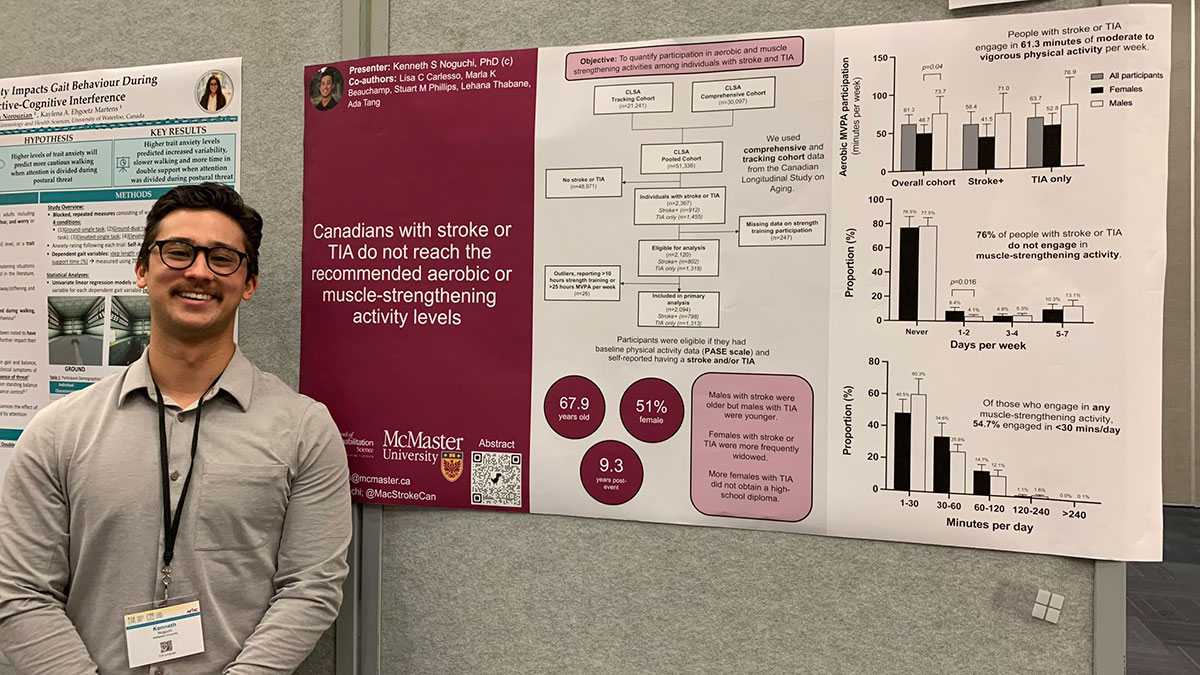Weight-loss drugs in Canada: What experts want you to know

Diet and exercise have long been the go-to duo to assist with obesity, a chronic condition that impacts 30 per cent of Canadians, but researchers say the arrival of specialized weight-loss medications could be a major catalyst in aiding people who need that extra bit of help to become healthy.
Weight-loss drugs aren’t new to Canada. The first medication to receive approval for use was Xenical, all the way back in 1999. More than 20 years later, it’s difficult to go a day without hearing about drugs like diabetes medication Ozempic, which skyrocketed in popularity in 2023 due to its main ingredient, Semaglutide, showing potential of helping people with weight loss.
Semaglutide is also the key ingredient in Wegovy, a weight-loss specific medication that entered the Canadian market in May 2024.
We spoke with Zubin Punthakee and Katherine Morrison, obesity and diabetes researchers with McMaster University, about weight-loss medications, how they work and their uses in adults and children.
What is Semaglutide and how does it work?
Semaglutide is what’s called a Glucagon-Like Peptide-1 (GLP-1) receptor agonist, which is a medication that acts like a hormone called GLP-1 that is naturally made by the human body when you eat. The hormone communicates with the brain to signal if you’re full. It also slows down how quickly food leaves the stomach, which makes you feel fuller for longer.
“Its main effect is on the brain to reduce appetite or reduce our sense of hunger. It also does work on the stomach to slow gastric emptying. So, we may tend to feel fuller after a meal or for longer and therefore again not have those signals that would trigger more eating,” says Punthakee, an associate professor with McMaster’s Department of Medicine and a member of the Centre for Metabolism, Obesity and Diabetes Research (MODR).
The drug is currently recommended for use in adult patients with a body mass index (BMI) of 27 and who have at least one of the following related conditions: hypertension, Type 2 diabetes, dyslipidemia, or obstructive sleep apnea. The drug, however, can also be prescribed for use in children 12 years of age and older.
There are several side-effects to taking the medication. Punthakee says people may experience nausea, vomiting, constipation and diarrhea.
“Some people actually find the loss of appetite to be a negative side-effect and they don’t like the fact that they’ve lost their appetite or their enjoyment of food as much. So, for some people they will actually stop the medication because it’s working too well,” he says.
How does the drug fit into the weight-loss equation with diet and exercise?
There is a misconception that losing weight is as easy as eating less and working out, but according to Morrison, the biochemistry in the brain plays a much bigger role in weight loss than most people think.
“We know that your energy balance isn’t really in your control. This is not a cognitive thing. This is all about the signals going to your brain saying you’re hungry. We have a sense that biology obviously varies from one person to another and some people have much stronger appetite drives than others do,” says Morrison, a professor with the Department of Pediatrics and the co-director of MODR.
Obesity is a chronic health condition, just like diabetes or hypertension. Punthakee says while it’s always preferred to treat obesity without drug interventions, it’s a method that doesn’t always work.
This is where medications like Wegovy can be beneficial, as it impacts the signals going to the brain and can disrupt the brain signals that tells your body that it is still hungry.
“The treatment of obesity is coming into that paradigm where we can offer this pharmacologic therapy on top of non-pharmacologic therapy to get good effects for patients,” he says.
Can these drugs be used to help children with obesity?
Semaglutide has been approved for use in children 12 years of age and older, but to date, there have been limited studies done to evaluate the long-term impacts, says Morrison.
Many of the pediatric patients Morrison sees in her clinic have obesity, with the majority having additional health problems. She says more research is needed, but if the drug were to be administered, it would be better used in adolescents who have health issues.
“My sense is if we’re going to use it that we would be focusing not on body size, but on the health aspects. The family would need to agree that this might be something that could improve the health of the child and then we would think about going ahead.”
Morrison is part of a group that is working on new clinical practice guidelines that will help clinicians and families make decisions about the best approach for them. The guidelines are expected later in 2024.
“The fundamental approach that we take is really trying to encourage families and kids to work on their healthy nutritional intake, regular physical activity, reduced screen time good sleep and on their mental health as well.”
What is the long-term sustainability of these drugs?
Morrison and Punthakee agree more research needs to be done to understand what happens when stopping these drugs and what happens over long-term use.
“We have a lot to learn. We’ve got one year of data on kids. I don’t know the long-term impacts and I think it’s important that families understand that before they make this decision,” Morrison says.
Punthakee also pointed out that most research in adults has been done on the use of Semaglutide to treat people with diabetes, not weight loss. However, he says based on the evidence so far, there are no known harms.
“I don’t think there have been any signs that there are other problems that have come up with the medications. In fact, studies have shown the medication can reduce heart attacks and strokes, while also being shown to reduce kidney complications from diabetes,” Punthakee says.
Stopping the use of these weight-loss drugs will also eliminate their benefits, meaning patients will see a return of their appetite and may feel less full. For this reason, experts say it is important to continue working on a healthy lifestyle as to avoid the potential for drastic weight gain.
“We’re learning more and more about these medications, especially in people who are taking these drugs but don’t have diabetes. As much as we think people without diabetes may be different in terms of the effects they might experience with this medication, the evidence so far suggests there are no known harms other than what I’ve described already.”
Dept. Med, Dept. Peds, EducationRelated News
News Listing

How this nursing PhD grad is working towards reconciliation through research
Education, Feature, School of Nursing
5 hours ago

Daily News ➚
Two exceptional graduating students awarded prestigious Governor General’s Academic Gold Medal
Education, School of Nursing
24 hours ago

Three degrees & a wedding at The Phoenix. This grad reflects on a decade at McMaster.
Education, Feature, School of Rehab Science
3 days ago
